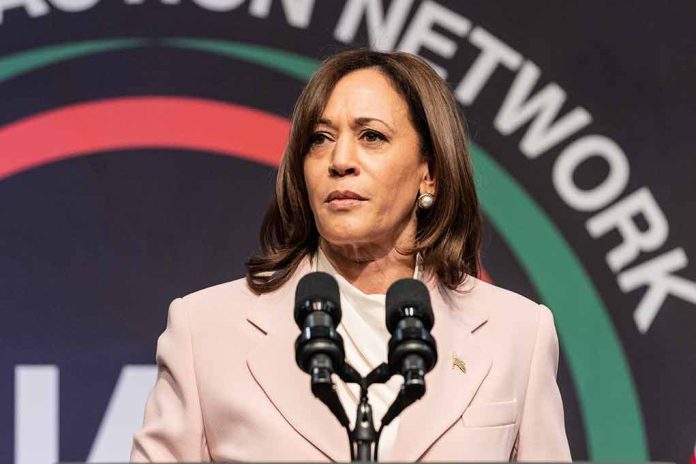
Kamala Harris recently engaged in a private meeting with Abdullah Hammoud, the mayor of Dearborn, Michigan, who has been accused of promoting antisemitic ideologies. Dearborn, known for its substantial Muslim American community, has become a focal point of political discourse related to the Israel-Hamas conflict. Critics argue that Harris’s choice to meet with Hammoud reflects poorly on her judgment and raises questions about her political affiliations.
“When President Biden was the Democratic candidate, he faced intense scrutiny from many Muslim and Arab Americans over his handling of the Israel-Hamas war.” – Source: PBS
Biden’s administration has faced significant criticism from Muslim and Arab American communities, particularly in Dearborn, over its policies on the Israel-Hamas conflict. These concerns have now shifted towards Harris, especially following her controversial meeting with Hammoud.
Political Alliances and Social Implications
Harris’s meeting with Hammoud included a discussion on the new Democratic ticket and the perceived differences between Trump’s and Biden’s handling of the Israel-Hamas conflict. Hammoud, who saw little distinction between the two administrations, emphasized the need for humanitarian approaches. The secrecy surrounding the meeting has only intensified scrutiny and speculation about Harris’s motives and potential implications for her administration.
“You know, as I have expressed, since President Biden has stepped aside and Vice President Harris has become the nominee for Democratic Party, we believe the door is cracked open, that there’s now opportunity to have dialogue, for us to understand how Vice President Harris will differentiate herself from President Biden on the path for Gaza.” – Source: PBS
Harris’s appointment of Nasrina Bargzie as her new outreach leader to engage Muslim and Arab voters has also attracted significant controversy. Bargzie has been criticized for past statements about Israel and Jewish students, accusing them of ‘organized legal bullying,’ and for her defense of extreme student groups like Students for Justice in Palestine.
Top Democrats have spent weeks meeting with “uncommitted” voters and their allies — including a previously unreported sit-down between Vice President Kamala Harris and the mayor of Dearborn, Michigan: https://t.co/1DI3D2q6ZC
— Michelle L. Price (@michellelprice) August 17, 2024
The Reactions and Future Implications
Republican critics, including former President Donald Trump, have accused Harris of being against Israel and the Jewish people, further complicating her political position. Additionally, Harris’s team faces the challenging task of maintaining support for Israel while addressing humanitarian concerns for Palestinian civilians, a stance seen as increasingly vital in her political strategy.
“Nasrina was an important partner in our development of the National Strategy to Counter Antisemitism. She was thoughtful and committed to the work of fighting anti-Jewish hate.” – Source: JPost
The broader implications of this meeting and Harris’s political maneuvers raise questions about the future of U.S. foreign policy and its impact domestically. Coming under fire for both her international alignments and domestic policies, Harris’s choices in the coming months will be scrutinized closely by both her political allies and adversaries.
Conclusion
The controversy surrounding Kamala Harris’s meeting with Dearborn Mayor Abdullah Hammoud underscores the complexities of navigating political alliances and addressing sensitive social issues. As Harris seeks to balance humanitarian concerns with political obligations, her decisions will likely continue to shape and be shaped by the evolving political landscape and public opinion.
“Palestinian lives should not be measured in polls.” – Abdullah Hammoud, Mayor of Dearborn, Michigan – Source: PBS
With significant public and political interest, it remains essential to watch how Harris responds to these challenges and whether her actions will align with the commitments she has made to various stakeholders.














